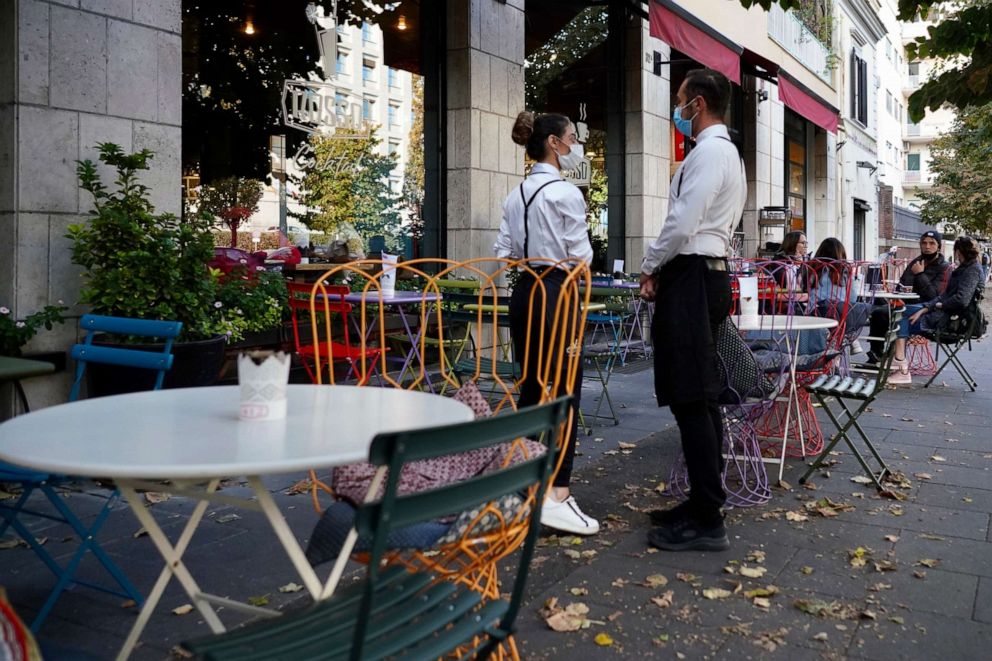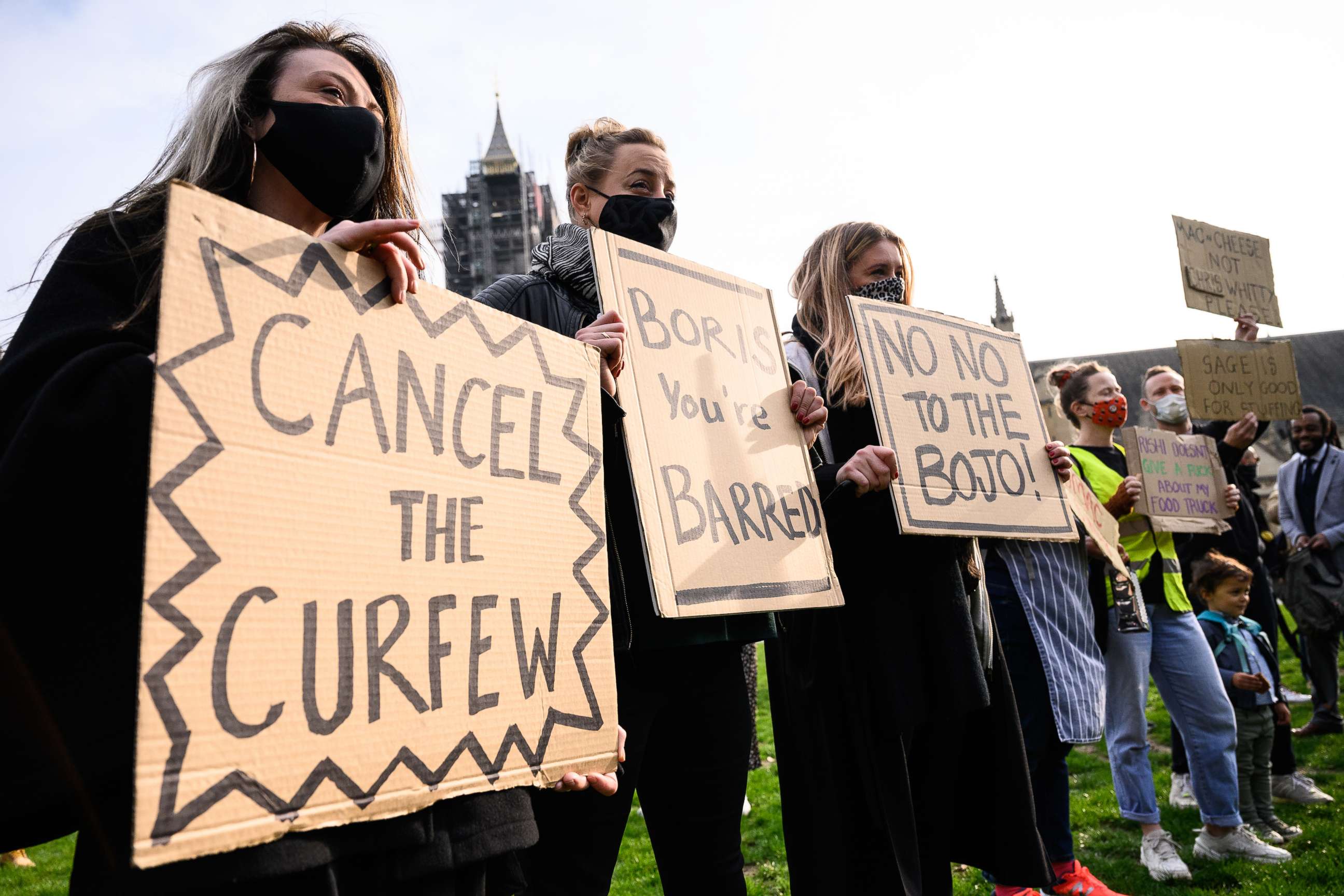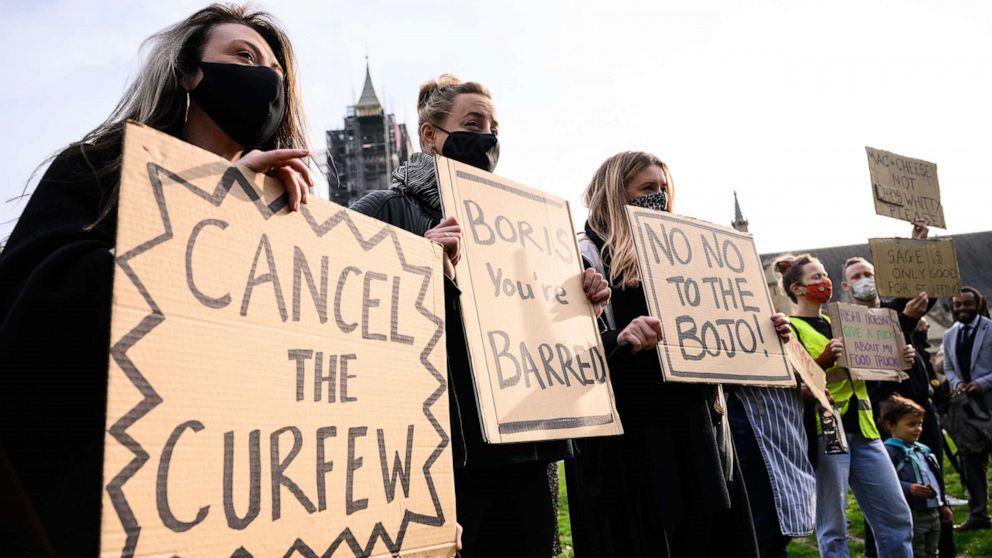Further restrictions, curfews imposed in Europe as continent fights 'second wave' of coronavirus cases
LONDON -- Governments across Europe have introduced more restrictions to combat the spread of COVID-19, with a combination of nationwide and specific regional measures and curfews imposed as the continent faces its "second wave."
The number of globally recorded coronavirus cases passed 40 million on Monday, according to John Hopkins University, and while more than half of those cases come from the U.S., India and Brazil, an increasing proportion of new daily recorded cases are emerging from Europe.
In total, over 7 million cases have been recorded in Europe since the start of the pandemic, according to the European Center for Disease Control, with 241,291 deaths.
After new restrictions were imposed in several countries earlier this month, Switzerland has followed Italy in imposing a nationwide mask mandate in all public spaces from Monday.

While not as restrictive as previous measures imposed when Italy faced a severe COVID surge earlier in the pandemic as it became the first country to surpass China’s death toll, local mayors have been given the power to close piazzas and streets from 9 p.m. and bars and restaurants must shut by midnight.
Ireland’s government has announced that, starting Wednesday, it is returning the country to a full-scale lockdown for six weeks, reinstating restrictions close to those that were in place in the spring at the height of the first wave of the pandemic.
The new lockdown will raise restrictions from Level 3 to Level 5, banning all house visits, closing all but essential retail stores, and requiring people to stay within a 5-kilometer (3-mile) radius of their homes. The new guidelines represent one of the strictest national lockdowns in Europe.
Over the past 24 hours from midnight on Sunday, 1,031 cases of coronavirus were recorded and zero deaths, bringing the national totals up to 50,993 and 1,852 respectively, according to the Department of Health.
In the U.K., the four nations of Scotland, England, Wales and Northern Ireland retain the power to set their own "lockdown" measures. In England a three-tier system remains in place, with varying restrictions imposed depending on whether an area is on "medium," "high" or "very high" alert.
London moved into the category of “high” alert, meaning household mixing has been banned in indoor spaces, and the authorities have not ruled out more stringent measures for the coming winter. A 10 p.m. curfew on restaurants and bars and a ban of more than six people from gathering has been in place for several weeks.

Wales moved to impose a "fire break” lockdown for over two weeks from this Friday. All non-essential stores as well as hospitality businesses will have to close from 6 p.m.. In Scotland, all bars and restaurants have been shuttered to combat the spread of COVID-19. Schools in Northern Ireland shuttered for two weeks on Monday, and restaurants are now limited to take-out services only for a four-week period.
Nine cities, including Paris, have been placed under a 9 p.m. to 6 a.m. curfew in France. Over the weekend the country reported over 57,000 new coronavirus cases. And in Belgium, all bars and restaurants have been ordered to shutter for the next four weeks.
On Monday, Russia set a record of daily confirmed new infections with 15,982 cases, but the Mayor of Moscow, which is recording the most cases, has rejected the idea of imposing a curfew or lockdown in the city. Russia has the most coronavirus cases on the continent, with over 1.4 million cases, according to Johns Hopkins University.
In a recent interview with ABC News, the WHO’s Dr Margaret Harris said that “people did believe” that they would get a “break” in the summer during the pandemic, which may in part explain why cases have risen since Europe opened up.
“And, unfortunately, people sort of did behave as if it had gone away and it hadn't, and that's why numbers have been steadily increasing since the middle of June,” she said.
ABC News' Patrick Reevell contributed to this report.




